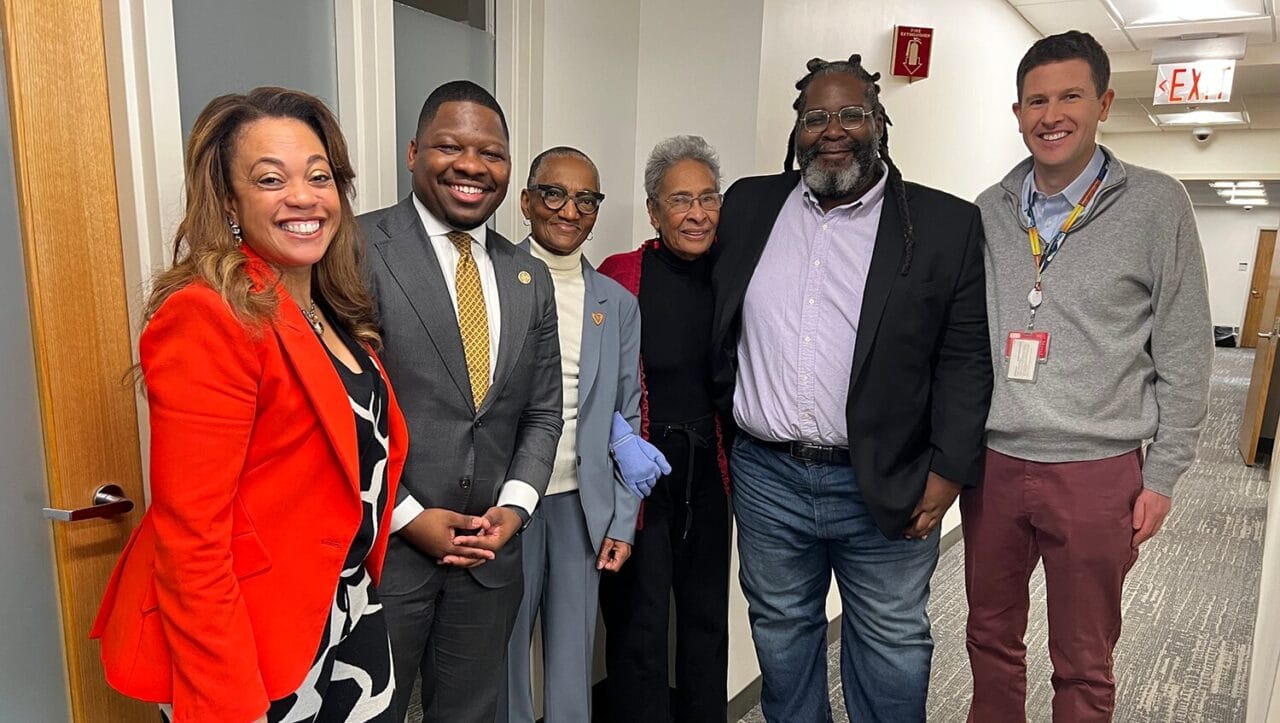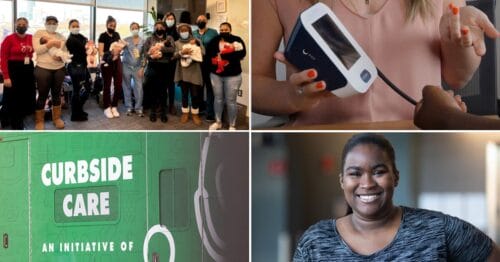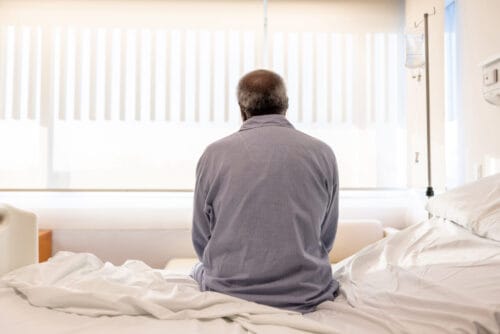Thea James on How Her Rotation in Haiti Changed her Medical Career
February 14, 2023

Boston Medical Center
(L to R): Trina Martin-Cherry; Rev. Willie Broderick II; Dr. Thea James; Dr. Jean Maguire; Gregory Ball, Dr. Alastair Bell
In a panel discussion of Black leaders in Boston, BMC's Thea James shared a story about a patient who taught her about understanding and trust in healthcare.
In healthcare, cultural competence and cultural humility aren’t just concepts to better patient experiences. They are used to fine-tune care delivery, and integrating these concepts into the systems and protocols of a hospital or healthcare environment can improve medical outcomes and build innovative, equitable care systems based on trust and mutual understanding.
On February 9, in honor of Black history month, Boston Medical Center (BMC) convened a panel of community leaders for “Trailblazers in the City of Boston: Pathways to Health Equity,” moderated by NBC 10 Boston’s Latoyia Edwards, and organized by BMC’s Vice President of Community Engagement and External Affairs Petrina Martin Cherry. Panelists included Rev. Willie Broderick II, senior pastor of the historic Twelfth Baptist Church in Roxbury; education and civil rights activist and leader Dr. Jean McGuire; Gregory Ball, director of Digital Strategy and Production at nonprofit Embrace Boston; and Thea James, MD, MBA, BMC’s vice president of Mission and co-executive director of the Health Equity Accelerator.
Their discussion spanned decades and topics, about schooling in Boston, the new Martin Luther King Jr. and Coretta Scott King memorial on Boston Common, and building equitable healthcare systems in the city. When asked by moderator Edwards what called James—who did her residency in the BMC Emergency Department, back when it was Boston City Hospital—to stay in Boston to practice, James shared a personal story of learning about true equity in healthcare and what that means, including cultural competence, humility, and building trust.
She opened up about encountering a patient in the Emergency Department who immigrated from Haiti. The patient was distrustful of the HIV diagnosis he was given due in large part to a history of mistreatment by healthcare systems—particularly how Haitian immigrants were unfairly added to “high risk” categories for contracting HIV. That generalization created huge stigma for Haitian immigrants, and it deepened a lack of trust in medical professionals and systems that already existed in many communities, especially Black communities.
Thea James on what kept her here in Boston to practice medicine
“I can really point to one particular incident. When I was an intern, I had a patient here who was from Haiti. After they diagnosed him with HIV, he looked at me and said, “I don’t have that. If I have it, you gave it to me.” And I knew immediately that it was about me. I knew it wasn’t about him. … The fact that he rejected the diagnosis made me realize I was missing something. So, I was the first resident in Emergency Medicine to actually do a global rotation because I felt like I just graduated from medical school, and if I’m no better than this, then I’m in trouble.
So, I decided I wanted to go to Haiti. I went to Haiti, and that’s when it became clear to me why the gentleman was responding that way. He was responding because what had happened with the slave revolt in Haiti, Haiti being the first Black republic, and how the world never forgave them for that.
Then when HIV was first described, [the CDC] had a list of high-risk groups [for contracting HIV], and recent Haitian immigrants were on that list. There was no reason for him to accept what I was saying to him, that he had HIV. And it was my own lack of knowledge about that whole history.
What I took away from that and brought back here to Boston was that people interpret what they hear and see, based upon lived experience.
BMC allowed me to go explore and learn these things, and then come back and bring what I’ve learned and operationalize it in different ways here, so we could understand our patients better… It’s because the organizational culture here is one of nurturing, of support, of being open to listening and doing different things. That’s what has really kept me here. That’s what we have to do to be able to really provide what patients want.”


